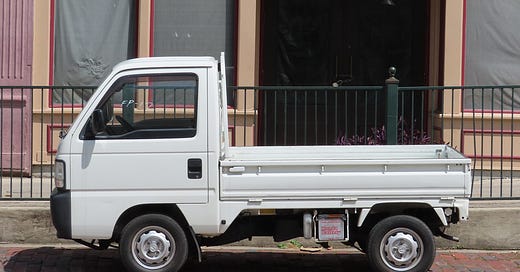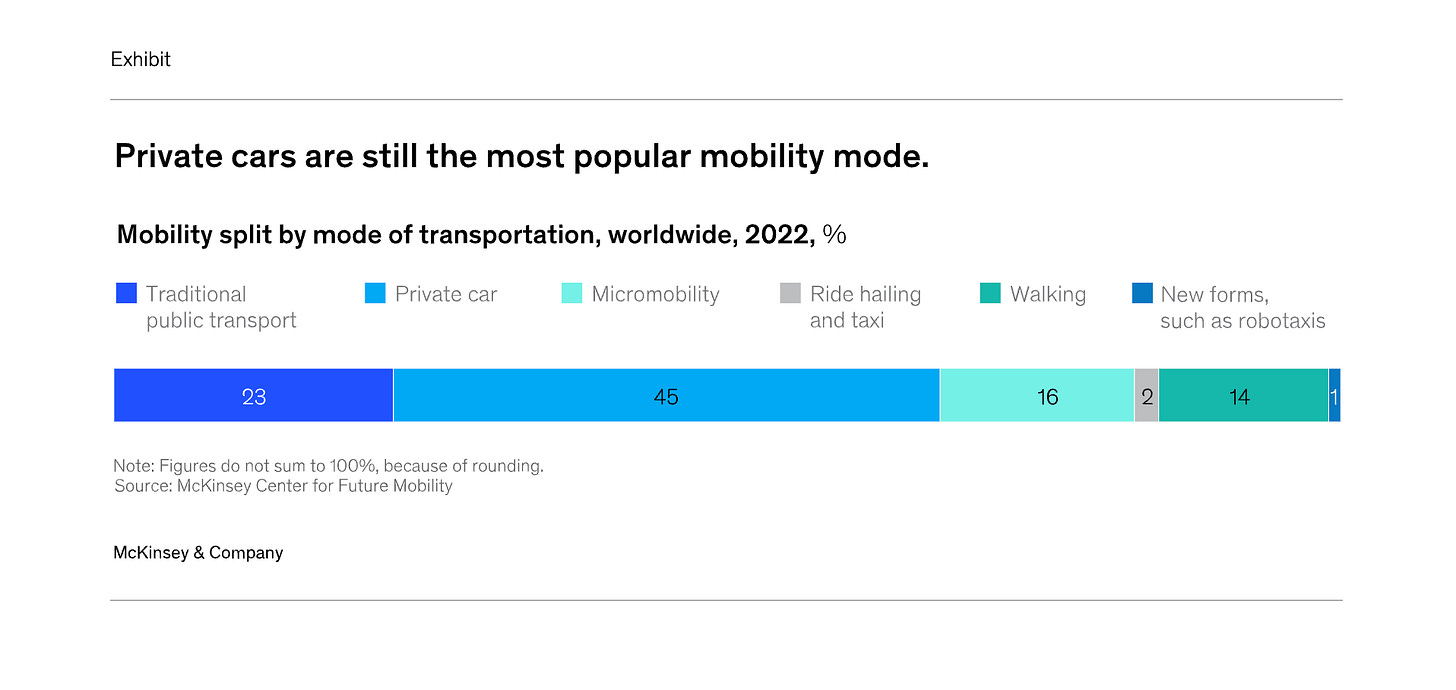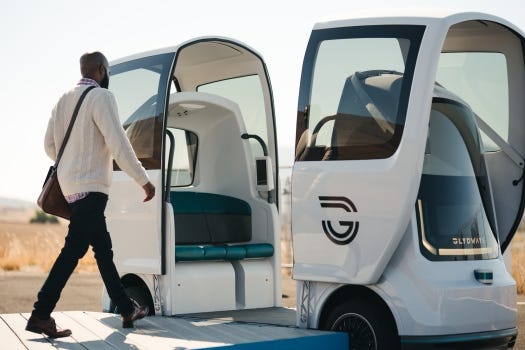🛻 Tiny Japanese Trucks Take Rural America by Storm
Plus, Unagi joins forces with Best Buy on subscription scooters, Kate raises funds for tiny cars, and Lisbon cracks down on cars.
Hi - Before we start, a final reminder that our Earth Week Sale is ending today 🌍
Prices for Micromobility Europe are going up at midnight tonight. Now is your chance to grab tickets and save more than 50%. In case you didn’t know, the Amsterdam event this June 8-9 is shaping up to be our best yet and we’re adding exciting new speakers every day… don’t miss out!
Today’s newsletter is brought to you by… Upway
Meet Upway - the #1 certified e-bike expert. Their team of master mechanics in Brooklyn, NY completes a 20 point certification on each bike, giving each one a one year warranty. They carry a huge selection of both new and pre owned e-bikes on their website, all up to 60% off retail prices. Use code MOBILITY for $200 off off your next purchase of $500+.
What You Need to Know Today
Tiny Japanese pickup trucks, also known as “kei” cars, are cropping up across rural America, filling a niche for farmers, building contractors, and other tradespeople that U.S. automakers have completely ignored.
A tax credit worth up to $1,500 for an ebike has been introduced in the Minnesota transportation budget for consideration.
In Austin, the public utility Austin Energy is doubling its rebate up to $600. The program not only covers ebikes, but scooters, trikes, mopeds, and motorcycles as well.
Research from McKinsey shows that globally micromobility is the third most popular form of transportation and growing. Over the next decade, 30% of consumers plan to increase their usage of small vehicles.
On that note… on the latest episode of the Micromobility Podcast, Kersten Heineke, a partner at McKinsey, joins us to discuss why micromobility offers such a compelling alternative for cities.
Kate, a French company that manufactures tiny electric cars, has raised $7.6M in angel funding.
In other funding news: Okiya, a Singapore-based battery-as-a-service startup, has raised $10.8M in Series B funds to connect electric two-wheeler firms to its charging network.
Speaking of charging networks, Gogoro is transforming its battery-swapping stations in Taiwan into virtual power plants, which will supply power back to the grid when local demand maxes out the existing supply.
Lisbon plans to bar automobiles from passing through the city center. Bravo, but the only problem is that the restrictions are currently intended to be temporary.
New York City is considering the feasibility of building more charging stations for ebikes to reduce the risk of battery fires in apartment buildings.
Luup, a Japanese shared scooter company, has raised $33.5M for expansion through a combination of equity and debt financing
Unagi has secured Best Buy as a scooter subscription partner, raising $29.3M through a mix of equity and debt to scale up its HaaS business.
Cowboy, a Belgian ebike maker, cruised past its goal of raising €1M in crowdfunding in under 48 hours earlier this week.
At three-wheel EV maker Arcimoto, board member Chris Dawson will take over as CEO following a leadership shuffle.
Rad Power is teaming up with Redwood Materials for ebike battery recycling.
New York City has 70k delivery workers who rely on ebikes. On a new episode of Ride On!, we catch up with the co-founder of Whizz about the potential to get those couriers onto better, safer vehicles. Other topics include Uber’s plan to fight ebike fires, Amsterdam’s mission to become even more car free, and much, much more.
Is the expectation that bikeshare systems should be able to operate without any public subsidies a fatal flaw for U.S. cities?
In the Netherlands, a nationwide investment in putting bike parking at train stations is paying off by making cycling safer and more seamless.
Related: The Dutch city of Utrecht is developing a new neighborhood that will eventually house more than 10,000 residents and 0 privately owned cars.
San Jose is exploring the possibility of deploying a squadron of tiny driverless shuttles to ferry travelers between the airport and downtown train station.
New research from the UK finds that people tend to overestimate others people’s opposition to cycling-friendly measures.
Take it from Tokyo, decreasing car-dependency starts by de-incentivizing car use. Only 12 percent of trips are made via car in the Japanese capital, due to strict vehicle inspections, high automobile taxes, and limited parking availability.
A new video reveals how ebike startup Dance is integrating Apple products into its designs.
Browse the best jobs in micromobility—and post your own—on our Jobs to Be Done board.









